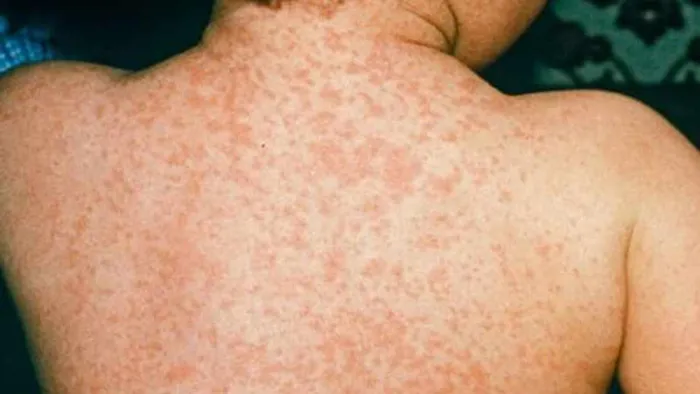Rising measles outbreaks in South Africa amid falling vaccination rates

There is a growing concern over the number of measles cases reported nationally
Image: File
South Africa faces a growing measles crisis as childhood vaccination rates continue to fall, leaving thousands of children vulnerable and driving outbreaks across multiple provinces.
The National Institute for Communicable Diseases (NICD) has confirmed that measles outbreaks are ongoing in several provinces, including Gauteng, the Free State, Limpopo, Mpumalanga, North West, the Northern Cape and the Cape Town Metropolitan Municipality.
Between week 1 and week 45 of 2025, 1,795 laboratory-confirmed measles cases were reported nationally, with 114 new cases added in the last week alone.
Gauteng remains the most affected province, recording 745 cases, while the Western Cape reported 52 new cases in week 45. Rubella infections continue to rise as well, with 1,698 cases detected nationally by week 45.
Against this backdrop, the Western Cape Department of Health and Wellness says it is increasingly worried about the province’s own rising case numbers.
“The Western Cape Department of Health and Wellness remains concerned about the recent increase in measles cases across the province,” said spokesperson Shimoney Regter.
“Between 1 January and 8 November 2025, the Western Cape recorded 282 laboratory-confirmed measles cases, with the majority in the Cape Town Metropolitan area. No deaths have been reported. Rubella cases have also been detected nationally, and both diseases remain highly contagious and preventable through vaccination.”
Regter added that the rise in cases mirrors national trends.
“This increase is not unique to the Western Cape. South Africa is experiencing a decline in childhood vaccination uptake, which poses a serious risk to public health and threatens the country’s efforts to eliminate vaccine-preventable diseases,” she said.
“This decline has contributed to outbreaks of measles, rubella, and diphtheria across the province, signalling serious gaps in population immunity.”
She explained why the province is now more vulnerable.
“Routine childhood immunisation coverage has dropped significantly. For children under one year, coverage in the Western Cape fell to 67.4% in 2024/25, down from 67.6% in 2023/24.
“The ideal target is 95% to achieve herd immunity. This decline began during the Covid-19 pandemic due to service disruptions and has been compounded by vaccine hesitancy driven by misinformation. Lower coverage weakens herd immunity, making outbreaks more likely.”
The Department has implemented an early warning and response system, including targeted vaccination outreaches in high-risk areas such as Khayelitsha, Mfuleni, Eerste River, Somerset West, Mitchells Plain, Kraaifontein, and Wesbank.
The NICD noted that measles is endemic in South Africa and tends to rise during autumn and spring. Outbreaks typically take hold in communities where many children remain unvaccinated or have received only one of the two recommended doses.
A national measles vaccination campaign is underway from 3–28 November 2025, with health teams aiming to close immunity gaps through mass immunisation, surveillance strengthening and community outreach.
Authorities continue to urge parents to ensure children are fully vaccinated, warning that even small drops in immunisation coverage can undo years of progress in controlling vaccine-preventable diseases.
tracy-lynn.ruiters@inl.co.za
Related Topics: